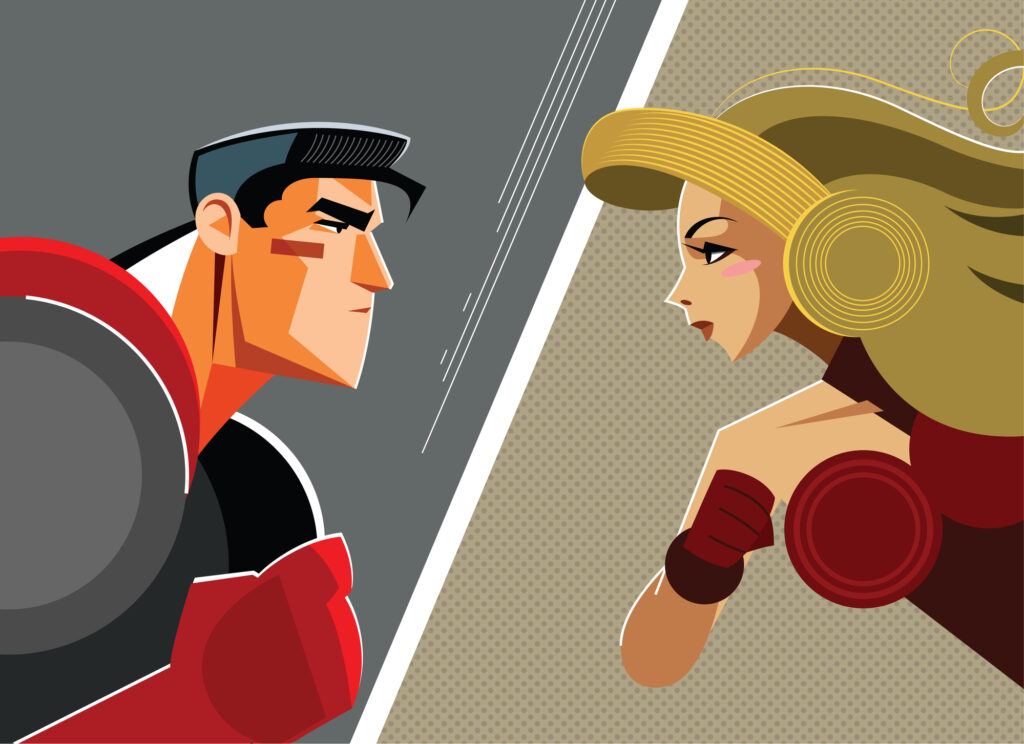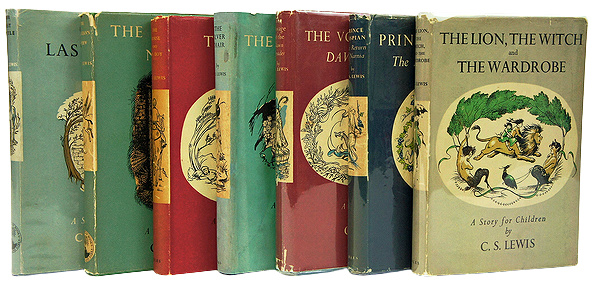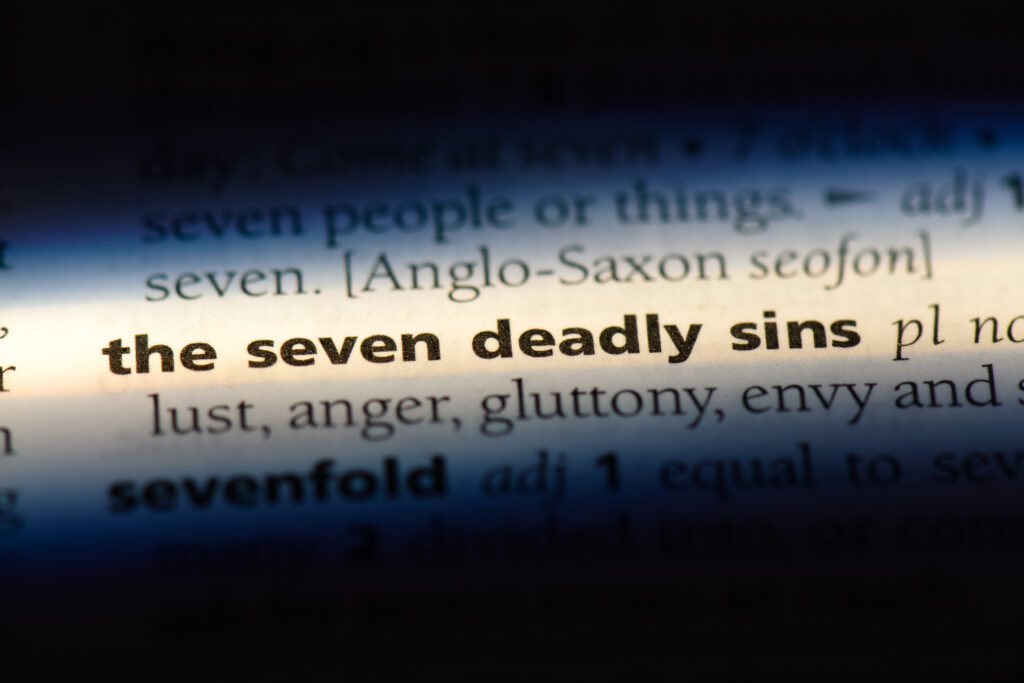
In the 1990s, opponents of Christianity made arguments that aimed to disprove God’s existence. But in this age of vague spirituality, people don’t necessarily deny God’s existence; they deny His holiness. The primary attack on Christianity right now is a moral one. Young people don’t wonder if God exists. They wonder if God is good.
Most people who leave the church today make their exit because they reject Christian morality. They get so confused that they come to believe Christians are evil. We used to call that backsliding, but now we call it “deconstruction.” It goes beyond saying, “I will no longer follow Christian morality.” Deconstruction says, “Christian morality is evil.”
The stories we ingest shape the morality we develop, but only to a point. If a story’s morality gets too twisted, the story fails to resonate with readers.
Moral confusion is why movies and TV shows are less entertaining than they used to be. Superhero films don’t resonate with audiences like they used to because they lack moral clarity.
But what is morality? Why is it so important for good stories? How do you put a message into your book without the book becoming preachy?
As you craft your stories, you must consider the moral system your story conveys. If you don’t give considerable thought to your moral system, your book will be preachy, and your story will not be believable.
Fiction can be a powerful tool to demonstrate the consequences of actions. True fiction allows us to learn from the mistakes and triumphs of others.
For example, my family lives by a busy road, and one way I keep my small children from running into that road is by telling them stories of squirrels who ran into the road and got squished. As the fictional squirrel bleeds to death in the road, crying because of the pain, my small children decide in their hearts not to run in the road themselves. The fictional squirrel suffers so my children don’t have to.
The story is more effective than a sermon about the dangers of cars.
But imagine if the squirrel survived getting run over. My story becomes less believable and potentially dangerous for my small children.
When you write a story, you create a world. Part of your world is the moral system. Every time a character makes a choice and experiences a consequence, you reinforce your moral system. If your story feels unbelievable, it may be that your moral system is flawed.
As humans, we each have a conscience that gives us an innate sense of morality (Romans 2:15). Deep down, we know right from wrong, or at least we know the beginnings of right and wrong.
When an author has to warp morality to make a point, the point will conflict with the reader’s conscience, and the story will come across as cheesy or unbelievable.
How to Avoid Hollywood-Style Sermons
An amoral concept has infected Hollywood screenplays and Christian books alike. Some people call it clinicalism, and others call it clinical pluralism. Clinical pluralism is the belief that there is no right or wrong. There is no such thing as evil; there is only trauma. In stories where clinical pluralism is the overarching moral system, villains don’t do evil because they are evil. They do evil because they suffered trauma in the past.

Clinical pluralism is sometimes connected with a Marxist oppressor/oppressed worldview where oppressors are evil, and the oppressed are good. Marxism is an anti-Christian worldview. In Christianity, there are no oppressors or oppressed, slave or free, Jew or Gentile (Galatians 3:28). There are only wretched sinners in need of a savior. The slave needs salvation as much as his master. The oppressed need a savior as much as the oppressors do. Being oppressed doesn’t move you one inch closer to the Kingdom, and being an oppressor doesn’t disqualify you from the love of Christ.
Not only is amoral storytelling unchristian, but it is also boring and preachy. We live in a broken world. Everyone experiences trauma. When taken to its logical extreme, amoral storytelling causes villains and heroes to become indistinguishable.
For example, in the older superhero stories, characters like Iron Man had to struggle with their own sin and learn the value of sacrifice. In the newer superhero stories, characters like Captain Marvel can beat up a man and steal his motorcycle because he told her to smile. In the moral system of that movie, Captain Marvel’s actions are justified because she is oppressed, and the man is an oppressor.
For a superhero story to work, the protagonist must be more than merely super. The protagonist must also be a hero. This principle applies not only to superhero films but to fairytales as well.
In the new Snow White movie Disney is making, the lead actresses explained that “Snow White doesn’t get saved by the prince, and she doesn’t dream about true love. She dreams about becoming the leader she knows she can be.” In the original story of Snow White, the longing for power and beauty was the motivation of the evil queen. The original fairytale explores the difference between internal beauty and external beauty. It is a profoundly moral story that explores the consequences of the deadly sin of envy.
Writers of the new Snow White want to tell a story about two amoral characters fighting for more power, which makes for a boring story. No one cares which amoral character wins! Once Disney heard the backlash, they delayed the film for a year of reshoots.
Time will tell how the writers decide to solve the problem. Perhaps they will panic into making a shot-for-shot remake of the original.
The absence of morality makes a story boring, but how does it lead to preachiness?
When a story’s moral system is broken, but the writer still wants to convey a message, one of the characters inevitably must give a sermon. The preachiness that results is a problem for Christian books and Hollywood. If you don’t believe me, I have one thing to say: “You’ve got to do better, senator.”
If characters were allowed to suffer the consequences of their actions, the message would be organic, and the sermons would be unnecessary.
How to Write Timeless Stories Readers Want to Read
Contrast clinical pluralism with the morality in the Chronicles of Narnia by C.S. Lewis. The Chronicles of Narnia are 70-year-old Christian books that continue to outsell most Christian novels published today.

What was C.S. Lewis’ secret sauce? He rejected pluralism and wrote deeply moral stories.
C.S. Lewis’ characters are not victims of their upbringing, circumstances, or trauma. They each experience trauma, but they still make decisions and experience the consequences of their actions. Whether they do good or evil, their actions matter.
Taking meaningful action is a key element of an appealing character, but it goes deeper than that.
Lewis’ characters sin. Yes, even the children. In fact, most of the children sin. Edmond is a traitor and a bully. Peter lacks faith. Susan is vain. Diggory is selfish, prideful, and inconsiderate. Don’t get me started on Eustace, Jill, and Aravis.
Sin’s consequences are not glossed over. Aslan suffers for Edmond’s treachery, but Edmond suffers, too. He is the only sibling who doesn’t receive a magical gift from Father Christmas.
In The Horse and His Boy, Aslan attacks the child Aravis, tearing up her back with his claws as a punishment for how she treated her slave. Aslan is not Santa Clause. He is not a tame lion, and that is what makes him interesting.
Taming God makes your story less interesting.
Taming God makes your story less interesting.
Thomas Umstattd, Jr.
While readers have grown tired of reading about villains who are victims of trauma, they are not tired of the White Witch, King Miraz, the Tarkan of Tashbaan, or the Lady of the Green Kirtle.
Lewis doesn’t glamorize sin, but he doesn’t hide from it either. By embracing Christian morality, his books have become timeless. The sins of Eustace, which Lewis portrayed 70 years ago, are the same sins that tempt me today.
From teaching children’s Sunday school, I’ve learned that children pay close attention when I refrain from sanitizing the Bible stories. The more I sanitize biblical stories with my modern sensibilities, the more boring the stories become.
The More Specific the Sin, the More Powerful the Story
In a Christian book, the villains are sinners, but so are the heroes. We all know this, but what is sin? A vague “we are all sinners” is not enough to create interesting characters. That is like saying, “Everyone has a personality.” It’s true but unhelpful.
Writers often ask me to record an episode on the Enneagram, Myers Briggs, or other personality indicator tools so they can learn to create more differentiated characters. Personality indicators can be useful, but your characters will be even more differentiated if you give each one a specific sin to struggle with. Don’t give your characters a generic personality. Give them a specific personality. Don’t make them generic sinners. Let them sin in specific ways.
What specific sins should my characters struggle with?
You could use the three besetting sins from 1 John 2:16-17:
- The lust of the flesh
- The lust of the eyes
- The boastful pride of life
From one perspective, all sin fits into one of those three categories. Repentance from each sin involves a response, such as fasting, almsgiving, and prayer.
You could use the Ten Commandments (Exodus 20):
- You shall have no other gods before the one true God.
- You shall not make or worship idols.
- You shall not take God’s name in vain.
- Remember the Sabbath day to keep it holy.
- Honor your father and mother.
- You shall not murder.
- You shall not commit adultery.
- You shall not steal.
- You shall not bear false witness against your neighbor.
- You shall not covet.
The nice thing about utilizing the Ten Commandments in your story is that they are already written on the hearts of your readers (Romans 2:15).
You could use the seven deadly sins:

- Lust
- Gluttony
- Greed
- Sloth
- Wrath
- Envy
- Pride
The seven deadly sins are the easiest to work with because they make death so easy to visualize.
You could write characters who struggle with the same sins you struggle with.
You know what lurks in the darkness of your own soul. Do you have the courage to bring that into the light and write it on the page?
Can your fictional characters face that which you dare not?
How do they handle their sin?
- Are they a slave to it?
- Do they struggle with it?
- Do they overcome? If so, how?
- How does their interaction with sin affect their interactions with other characters and the plot?
An accurate moral worldview makes your story timeless because, as the Bible says, there is no temptation that is not common to man (1 Corinthians 10:13). Accordingly, the sins your characters face will be the same sins your readers face, even hundreds of years from now.
Now Let’s Talk About Temptation and Ethics
We don’t need the devil to tempt us to sin, just like we don’t need outside pathogens to make us sick. You can get sick from your own waste, and you have a sinful nature that tempts you to sin. The devil whispering in your ear doesn’t help you stay clean any more than a smallpox virus helps you stay healthy, but you sin without the devil’s help, and you die even if you never get smallpox.
Regarding temptation, your characters must grapple with two questions:
- What is the right thing to do?
- Am I going to do the right thing?
Both questions give you a lot of room to explore. Different characters will have different perspectives. But you, as the author, must have moral clarity if you want your book to have moral clarity. That clarity is conveyed through the consequences and outcomes of your characters’ actions.
Final Encouragement
Christians have faced this kind of cultural and moral questioning before. In the eyes of the Romans, the first Christians were cannibals who refused to make the needed sacrifices to propitiate the gods and keep them from getting angry. Under their moral system, Christians were a danger to society. The truth survived then, and it will survive this present age.
Take comfort in knowing Christian morality comes from God himself. Take comfort in knowing God is good, holy, and righteous. We know the judge of all the world will do right. While that offers us great comfort, it should also put the fear of God in us. We, too, have consciences. We know we have broken God’s law and are damned by our own moral system. Our own deeds bear witness against us.
Now is a good time to go to the cross of Christ and repent. Take the plank out of your eye, and in so doing, you will be able to see clearly to help your characters with the specs in their eyes. Then, you will have the moral clarity to write a book that can last the test of time.
You have beautifully and clearly articulated something I have sensed for many years, but had trouble expressing. My shorthand version was something like, “The best stories have something of the gospel in them; not in words, but in the story and the characters. The best stories stir not only my emotions, but my very soul.” Thanks for expressing this truth so well, and how to do it.
Very good message. I definitely agree that I can only really enjoy a story that is good vs. evil.
I was a little confused by one thing you said. “In stories where clinical pluralism is the overarching moral system, villains don’t do evil because they are evil. They do evil because they suffered trauma in the past.” Are you saying that in this mindset the villain is justified by the trauma? If so, that would ruin the story. Showing the villain’s trauma does help the reader to have compassion on the villain, and hope the villain can be redeemed. Anakin Skywalker is a good example of this. But his actions as Darth Vader are still considered evil.
Well written. The propensity to idolize sin in one form or another needs to be recognized as the impetus driving sin’s appeal. Now, dealing with that sin can be the driving force keeping readers engaged.